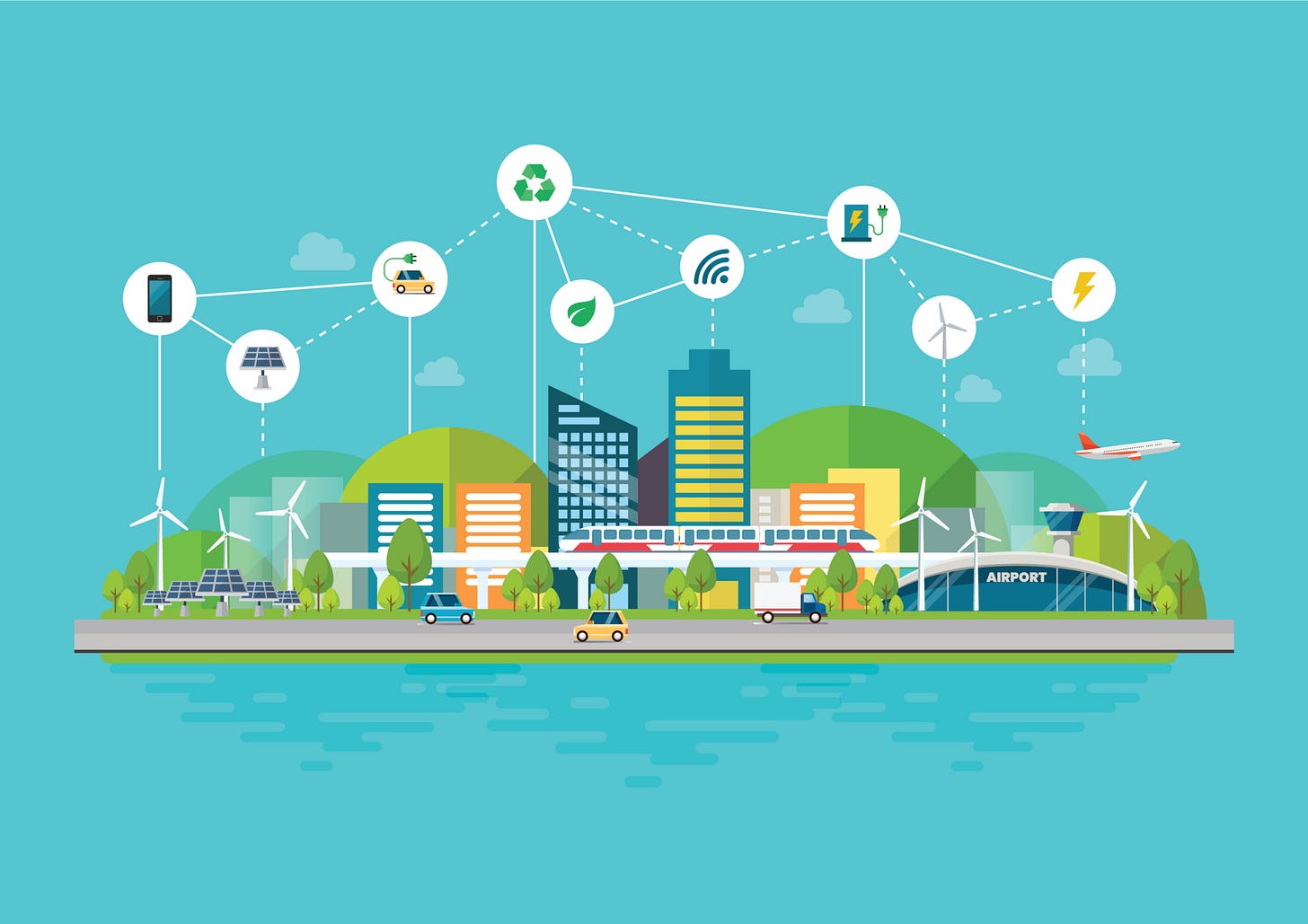Quick Take: Rethinking sustainability
Could businesses and activists create a greener world by shifting from a mindset that calls for doing less harm to one that calls for doing good?
Moving from sustainability to regeneration through business innovation
I subscribe to Scenario, The Magazine About Tomorrow, published by the Copenhagen Institute for Future Studies. It’s a fantastic and artful publication, and an essential input to my ongoing outreach for fresh ideas about the future and game-changing ideas for B2B innovation. I found great inspiration and common ground in the article, Regenerative Cities: The Moonshot of Our Time, by Nikolaj Sveistrup. After noting that a “key question for the future is to consider what the guiding principles of urban development will be” and that “our cities have still not reached a state of sustainability,” Sveistrup added this powerful insight:
This is true whether we measure sustainability in terms of reaching net-zero emissions or achieving an equilibrium in how we extract, consume, produce, and reuse. We need to ask whether sustainability, with its implicit focus on incremental improvement, is an ambitious enough goal to set. We may need to shift our focus from sustainability to ‘regeneration’ – from doing less harm to doing good.” [Emphasis added.]
While not Sveistrup’s intent, this insight struck a chord with something important I have heard from companies. Business leaders are increasingly supportive of sustainability goals, but are not inspired by how they are framed. For example, embracing carbon-neutrality means switching to renewable energy sources. This is all well and good, and may positively affect our lives, but it is not enough to inspire the most imaginative and consequential business innovations. Business innovations invent new products or services and create unique customer experiences. They go far beyond shifting energy sources. If the activists want to engage businesses fully, they should ask for more. As Sveistrup writes, they should ask for innovations that are not just about doing less harm, but about new solutions that create better outcomes for customers and, ultimately, for regenerating our cities.
I believe that innovating around sustainability requires a fundamental reframing of collaboration, foresight, and planning. Doing so may accelerate progress, even as Sveistrup highlights the challenge:
Sometimes, real change requires looking beyond what is realistic in the short term. The historian Arnold J. Toynbee perhaps this best when he wrote: “It is a paradoxical but profoundly true and important principle of life that the most likely way to reach a goal is to be aiming not at the goal itself but at some more ambitious goal beyond it.”
Let me be blunt: From my perspective, sustainability advocates often view a business’s profit incentive as a barrier to progress. This is misguided and short-sighted. By earning profits, companies act as a responsible steward of society’s resources including labor, capital, infrastructure, and financing. They seek future profits via continuous improvement and creative foresight. Sustainability advocates could achieve much more by dispensing with tactics that include hectoring businesses and threatening regulations and instead work collaboratively around product, service, and business model innovations. We can regenerate our cities through business innovations, especially if those innovations are designed to achieve sustainability by pulling us all toward the future, not just by switching energy sources. The best future is about innovation, not substitution. This is a moonshot worthy of our energy and passion.
Your take?
Am I on target? Would you change my call for innovation over substitution? Will doing so provide a better frame for businesses in regenerating our cities? Do you have examples? Please share your comments below or reach me at mark.dancer@n4bi.com.



Could businesses and activists create a greener world by shifting from a mindset that calls for doing less harm to one that calls for doing good? Yes, definitely. As a starting point consider the global position after the Paris Accords. Everybody made big promises to reduce carbon output, but the US did not put it through the US Senate. Several years later all other countries we significantly over their past carbon output, not down--except the US. The US carbon output dropped significantly. And it was nothing that the government planned or led. US natural gas boomed with the implementation of fracking, and it replaced coal for generating electricity. Definitely not what the activists asked for or planned. In fact, many detest fracking technology.
Sustainability is a good concept as it is future oriented. Unfortunately, many thinkers look at sustainability as an equilibrium, and look at resources as renewable or non-renewable. The earth and universe have many systems temporarily in static equilibrium, but the over-all trend is one of underlying change. In the energy sector, the long anticipated break-through is fusion energy. One would expect activiists to embrace the progress in nuclear fusin energy, but their mindset is fixed on a static equilibrium without room for progress.